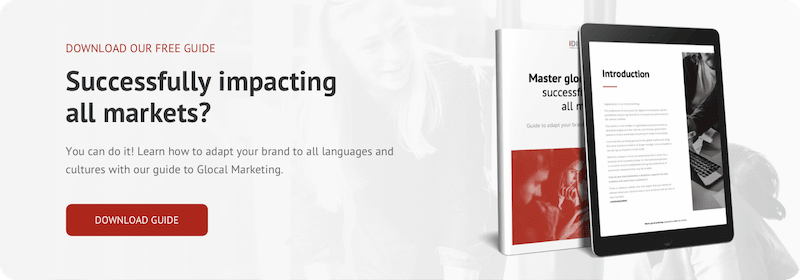As we already know, B2B (Business to Business) markets have become extremely competitive in recent years and the digital marketplace has given way to a new approach to the B2B industry. In this context, an effective digital marketing strategy can be the difference between success and failure for your business.
That is why today it is impossible to address this topic without mentioning Account-Based Marketing (ABM).
This concept is becoming increasingly popular in the industry, especially in the industrial sector, but why is that? What is an Account-Based Marketing strategy? How does it help optimize sales?
We will answer all your questions in this article.
What is Account-Based Marketing (ABM)?
Account-Based Marketing is a strategy focused on specific high-value accounts.
Its main objective is to find and attract high-value leads, i.e., candidates that perfectly match the company's ideal customer profile, which is why it is a high-value contact.
The intention is not to attract a large number of leads, but to connect with those who are actually attractive in terms of sales goals.
This growth technique requires marketing and sales teams to work together to identify specific accounts and create personalized buying experiences. This may involve creating customized content, selecting specific marketing channels and tailoring emails to connect with the specific needs and challenges of each account.
Perhaps this makes it easier to understand why more and more companies are opting for an ABM strategy: it allows them to focus on the highest value accounts from the outset.
But that’s not all. Here are some of the benefits of implementing an Account-Based Marketing strategy at your company:
- Improve the quality of potential customers
- Increase business relevance
- Reduce costs and increase sales
- Keep sales and marketing departments aligned
- Simplify the sales cycle
- Focus on insights and not only on leads
- Deliver consistent customer experiences
Today, 86% of B2B companies that have implemented ABM strategies say they have increased their sales.
You may be thinking, “Perfect! Well, I'm going to take the plunge and implement an ABM strategy right now.”
Wait! To know how to successfully implement an ABM strategy at your business, you have to go one step at a time.
Steps to implement an Account-Based Marketing strategy
As we have been telling you, Account-Based Marketing aims to maximize the number of leads and improve conversions at every stage of the sales process. Therefore, to achieve these objectives it is essential to thoroughly prepare each phase.
1. Identify your key accounts
The first phase of designing an ABM strategy is one of the most critical, because if we make a mistake during this step, the whole strategy will be wrong.
Identifying the key accounts you would like to attract is essential. These accounts should have the potential to generate a higher amount of revenue and a lasting business relationship.
There are a variety of technology tools that can help us. One of the most widely used is LinkedIn’s Sales Navigator. You can use this tool to target highly specific audiences according to the criteria you choose.
2. Define the customer experience
Once you have identified your key accounts, it is crucial that you analyze and understand their needs and challenges. Find out their concerns and interests to customize your approach and make your marketing strategy more effective.
Don’t forget that we need to exceed the expectations of our key accounts to move on to the next phase.
3. Create a contact strategy
You need to select the right marketing channels to reach your key accounts. This may include email, social media, online advertising and more. Be sure to select the channels that are most effective for reaching your target audience.
Once you have selected them, it’s time to design the customized strategy you planned!
4. Measure your results and start again
In the last phase of an ABM strategy, the goal is to send out personalized content to promote lead nurturing. This way, you will be able to convert more customers.
One of the advantages of this technique is that the goal is very specific, making it easy to measure results and improve them right away.
Did you find this strategy interesting and are you thinking of implementing it at your company?
We are positive you won’t regret it!
If you are trying to expand into different markets and get new customers, we recommend you read our article: Glocalization: dominate different markets through translation.
At iDISC, a translation agency, we have been helping companies like yours expand into other markets for over 30 years. Would you like our assistance?
Don’t forget that you can find tons of other interesting content on our blog.




.jpg?width=370&height=200&name=Falsas-creencias-de-ciberseguridad%20(1).jpg)